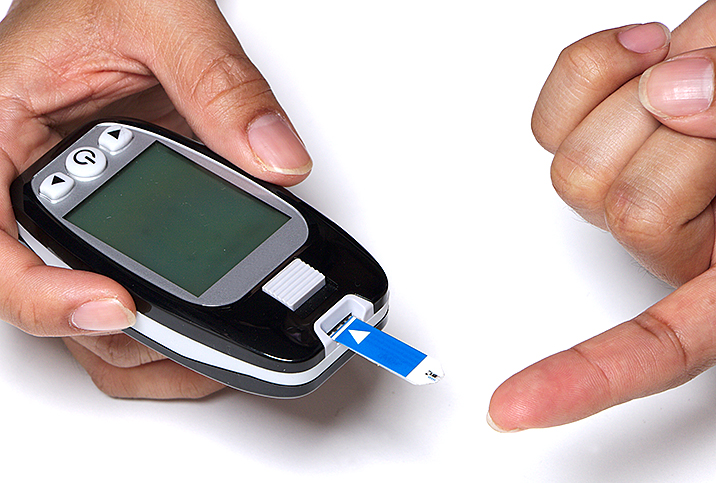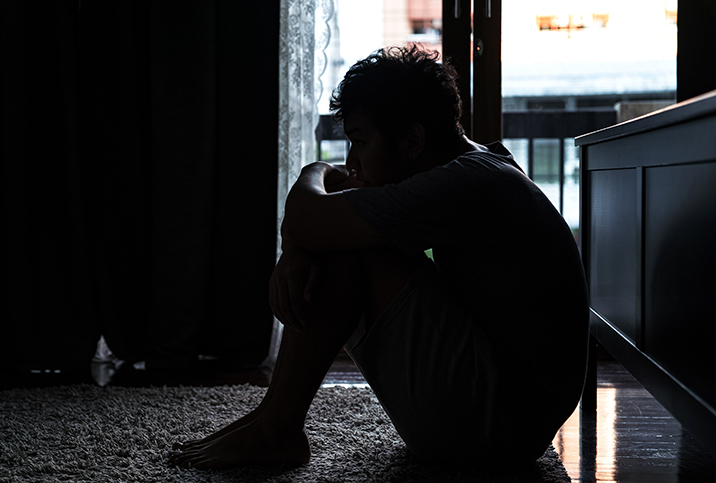Don't Let These 5 Health Concerns Damage Your Love Life

The euphoria of falling in love is almost indescribable: the butterflies in your stomach, the mind-blowing sex and the closeness of intimacy. But over time, science shows, initial lust can fade, even if love remains. However, this isn't necessarily the product of chemistry or hormones produced by the brain. Sometimes it's your mental or physical health. So if your sex life has been on the decline, first check your health and the habits that contribute to it.
1. Anxiety
Anxiety produces cortisol in the brain. A high level of this chemical suppresses the normal production of the sexual hormones that enhance desire, thus lowering your libido. As a result, chronic anxiety can impair your love life to the point where your lust decreases or disappears altogether.
Unfortunately, many of the prescription drugs that control anxiety may also cause a drop in sex drive. For a treatment plan that has fewer complications and may be longer-lasting, many doctors recommend lifestyle changes as the first line of defense. Staying active and abstaining from drugs, alcohol and caffeine have all proved effective at lowering anxiety. If that approach doesn't work, you may also want to talk to a sex therapist or another mental health professional about your problems and concerns.
2. Substance abuse
Substance abuse is another problem that can temporarily or even permanently affect your sex drive. And it's not just the effects of the substances themselves; the impact your addiction has on the relationship is another contributor to a love life lost. In cases of substance abuse, the abuser often fails to follow through with promises or may even become violent. This can undermine trust between partners and destabilize the relationship, essentially ruining any chance for intimacy. Plus, studies have indicated that substance abuse can lower users' libido and also lead to erectile dysfunction (ED) in men over time.
Before you permanently ruin your sex drive, take the first step on the path to recovery. This may mean slowly weaning yourself off substances or going to a rehab facility. Whatever path you choose, know that you'll likely not only become a healthier person but also potentially enjoy an improved sex drive.
3. Clinical depression
Much like those who suffer from anxiety, people with clinical depression can suffer from a loss of sex drive, an inability to achieve orgasm or decreased pleasure during sex. Exacerbating this problem, many antidepressants also cause a decrease in libido or sexual desire.
But sufferers of clinical depression shouldn't quit medication or treatment methods because they feel like it's ruining their sex drive. The best plan of action is to treat your depression first. Work with your doctor to find a medicine that's effective at treating depression and enables you to keep your sex drive high. That is ideal. It may take some trial and error, but it's well worth the effort. In addition, cognitive behavioral therapy (CBT) can also help treat depression.
4. Obesity
According to research conducted in France and published in the BMJ journal, obesity is linked to marked differences in sexuality. In comparison to average-weight individuals, obese people (designated as having a body mass index of 30 or higher) were less likely to report having a sexual partner in the past year (for women) or more than one sexual partner in the past year (for men). Obese men were also more likely than average-weight men to experience erectile dysfunction; additionally, obesity is linked to lower testosterone.
These complications, while dire sounding, have been shown to improve with weight loss. Dropping pounds isn't easy, though, and isn't as straightforward as eating less and exercising more. Weight loss is also impacted by genetics, stress, hormones and more. In addition to making informed choices about your daily habits, talk to your doctor and seek a referral to a nutritionist, if necessary, to attain a healthy weight.
5. Diabetes
Type 2 diabetes is a medical condition that can cause problems with the circulatory and nervous systems. In addition, it's a cause of libido loss in both men and women. Diabetes can reduce sexual stimulation and arousal as well as impair vaginal lubrication.
Men with type 2 diabetes often have lower testosterone levels than healthy men, and research indicates that diabetes can lead to erectile dysfunction. Furthermore, obese men are more likely to suffer from diabetes, compounding the issues above.
Type 2 diabetes is not curable, but it can be reversed. A healthy diet combined with exercise can lead to a longer life span and a healthier sex drive, even in older individuals.
If your sex life is lacking, it doesn't have to stay that way. Each of the ailments above has an appropriate treatment and resolution plan. Most people fall into a sexual funk from time to time. But knowing how to deal with your issue and putting embarrassment or shame aside can help get your love life back on track.


















